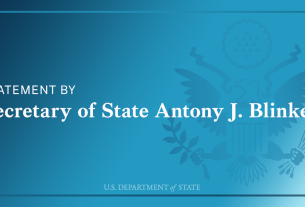Couples in Lebanon who married in online civil services are facing unintended – and unfair – consequences.
It started on the other side of the world from Lebanon in 2020, when a county in the US state of Utah began conducting civil marriages online. The move was meant to facilitate weddings despite Covid restrictions and was open to foreign nationals.
The first Lebanese couple, Khalil Rizkallah and Nada Nehme, were married using this Utah online process in November 2021, and by May 2022, Lebanon’s Interior Ministry had registered their marriage. Following in their virtual footsteps, dozens of other Lebanese couples married online, including couples who said Lebanese authorities assured them their weddings would be officially recognized.
Then the authorities changed their mind. The about-face is not only affecting the couples, but also putting their children at risk.
In September, Rizkallah and Nehme learned the General Directorate of Personal Status had de-registered their marriage with no advance notice. In October, their first child was born. But Lebanon requires parents to provide a marriage certificate for their child’s birth to be officially registered. The Interior Ministry has also refused to register the remote marriages of other Lebanese couples, some of whom are expecting children.
Unregistered children in Lebanon may be at risk of exploitation, and could face hurdles to attending school, and, later, opening a bank account, getting a job, or marrying. A cumbersome procedure exists to register children of unmarried parents, but the child will be registered only under the father’s name, leaving no legal connection to the mother. They may still face social stigma as “illegitimate” as well as restrictions on rights, including inheritance.
Rizkallah and Nehme have filed a lawsuit over their marriage’s deregistration. The government’s response, documented by rights group Legal Agenda, is that couples must physically go abroad for a civil marriage. But since February 2022, Lebanon has imposed extraordinary restrictions on obtaining passports. And with the country in financial collapse – the currency is worth 1/40th of its 2019 value – many couples cannot afford international travel.
The government’s response is a dereliction of Lebanon’s obligations to register children immediately after birth and uphold their right to a nationality.
It also points to the underlying problem. In Lebanon, civil marriage is forbidden. Religious authorities control marriage, divorce, and where children live after divorce, and there are 15 religious court systems, each with different rules. The system is discriminatory, and women’s rights and other civil society groups have for years called on parliament to pass an optional civil personal status law.
These recent cases are another reason why parliament should act. In the meantime, Lebanon should register all children’s births, including those whose parents married online in Utah.


